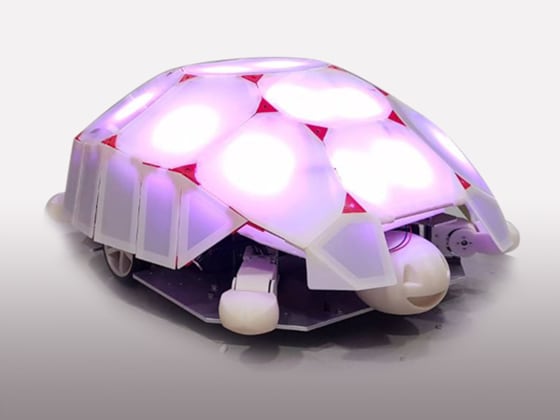Here's a little robotic tortoise with a big lesson to teach.
Shelly is a cute little guy, with a plastic shell, wiggly legs, and a series of LEDs that light up to express its repertoire of simulated emotions. But Shelly is more than just a toy. It’s a tool designed to help children understand that while robots may not feel pain or hurt feelings the way humans do, mistreating them is not okay.
If a child hits or squeezes Shelly — or tries to pry apart its shell — the sensor-studded turtlebot pulls its noggin back into its shell and doesn’t come out again for 14 seconds.
Shelly was created by researchers in South Korea in anticipation of the day when robots will be ubiquitous in our lives, helping in our homes and even acting as friendly companions. One of the researchers, Jason Choi, said it's important for everyone to understand that robots must be treated fairly if they are to be fully integrated into human society.
“We think that this is different from considering a robot as equal to humans,” Choi, a research intern at Naver Labs in Seongnam, South Korea, told NBC News MACH in an email. “We just think that a robot acting as a social agent can greatly serve the society” and that abusing robots could limit their value.
Dr. Kate Darling, a research specialist at the MIT Media Lab and a noted expert on human-robot interactions, told MACH in an email that children already tend to treat robots like animals or humans. “Even adults will treat robots like they’re alive, even though we know that they’re just machines,” she said. “And if that’s the case, then teaching children to be empathetic towards robots may help them be more empathetic towards living things as well.”
Shelly’s lessons seem to be working. When small groups of children were allowed to interact with Shelly, the roboturtle came in for its share of abuse; if one child hit or otherwise mistreated it, others tended to pile on. But the kids stopped when they saw that the abuse caused Shelly to shut them out.
You show 'em, Shelly.
FOLLOW NBC NEWS MACH ON TWITTER, FACEBOOK, AND INSTAGRAM.


